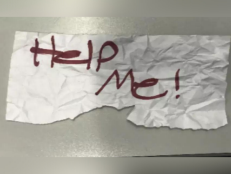Don’t Fall For These Common Coronavirus Scams
The Secret Service warns the crisis is a “prime opportunity for enterprising criminals.”

Stock image by Peter Dazeley/Getty
Sketchy characters may already be taking advantage of the coronavirus crisis and the anxiety surrounding the pandemic to scam unsuspecting Americans.
“Criminals are opportunists, and as seen in the past, any major news event can become an opportunity for groups or individuals with malicious intentions. The coronavirus is no different,” warned the United States Secret Service in a press release.
“In fact, the coronavirus is a prime opportunity for enterprising criminals because it plays on one of the basic human conditions...fear,” the law enforcement agency continued, adding, “Fear can cause normally scrupulous individuals to let their guard down and fall victim to social engineering scams, phishing scams, non-delivery scams, and auction fraud scams.”
Here are some suggestions on how you can avoid turning into the victim of some common hoaxes.
Buyer Beware
Michigan Attorney General Dana Nessel urges consumers to beware of cyber sellers who may be peddling bogus products.
“Online offers are selling masks — that reportedly are not being delivered — to consumers while using misleading language to convince them to purchase,” Nessel notes in a press release.
She adds: “The CDC has repeatedly warned that wearing a mask does not protect people who do not have the virus from getting COVID-19.”
Keep The Facts In Mind
There is currently no cure or vaccine to fight COVID-19, so don’t fall for emails, websites, phone calls or texts that claim otherwise.
"If you are promised a vaccine for the virus or some magic protective measures and the content of the email is making you worried, it has most likely come from cybercriminals," notes Tatyana Shcherbakova, senior web content analyst for the cybersecurity company Kaspersky, according to Consumer Reports.
Not-So-Charitable Requests
Criminals could turn to social media to solicit donations for fraudulent causes purportedly related to coronavirus.
“Increased caution should be exercised when donating to charitable organizations,” the Secret Service warns.
Sites like give.org and guidestar.org are great places to verify if a charity you’re interested in donating to is legitimate.
Gone Phishing
The World Health Organization has issued several tips for avoiding criminals who are now masquerading as the agency’s experts in order to attempt to steal sensitive information and money.
According to WHO, the agency will never ask for passwords or usernames in order for you to access information on COVID-19, never email attachments you didn’t request, never send you to websites outside of who.int, never charge for job applications and other services, and never offer lotteries, prizes, certificates or funding via email.
The Secret Service echoes WHO’s advice.
“Be leery of emails or phone calls requesting account information or requesting you to verify your account. Legitimate businesses will never call you or email you directly for this information,” the agency says.
Avoid Malware
Now is the time when malware attacks could ramp up, and the Cybersecurity and Infrastructure Security Agency recommends everyone be vigilant and exercise good judgment when opening emails, especially those that contain coronavirus or COVID-19 subject lines, links or attachments.
CISA advises to only “use trusted sources — such as legitimate government websites — for up-to-date, fact-based information about COVID-19.”
And the Secret Service suggests to “avoid opening attachments and clicking on links within emails from senders you do not recognize” since they “can contain malicious content, such as ransomware, that can infect your device and steal your information.”
Be aware, and be safe!









